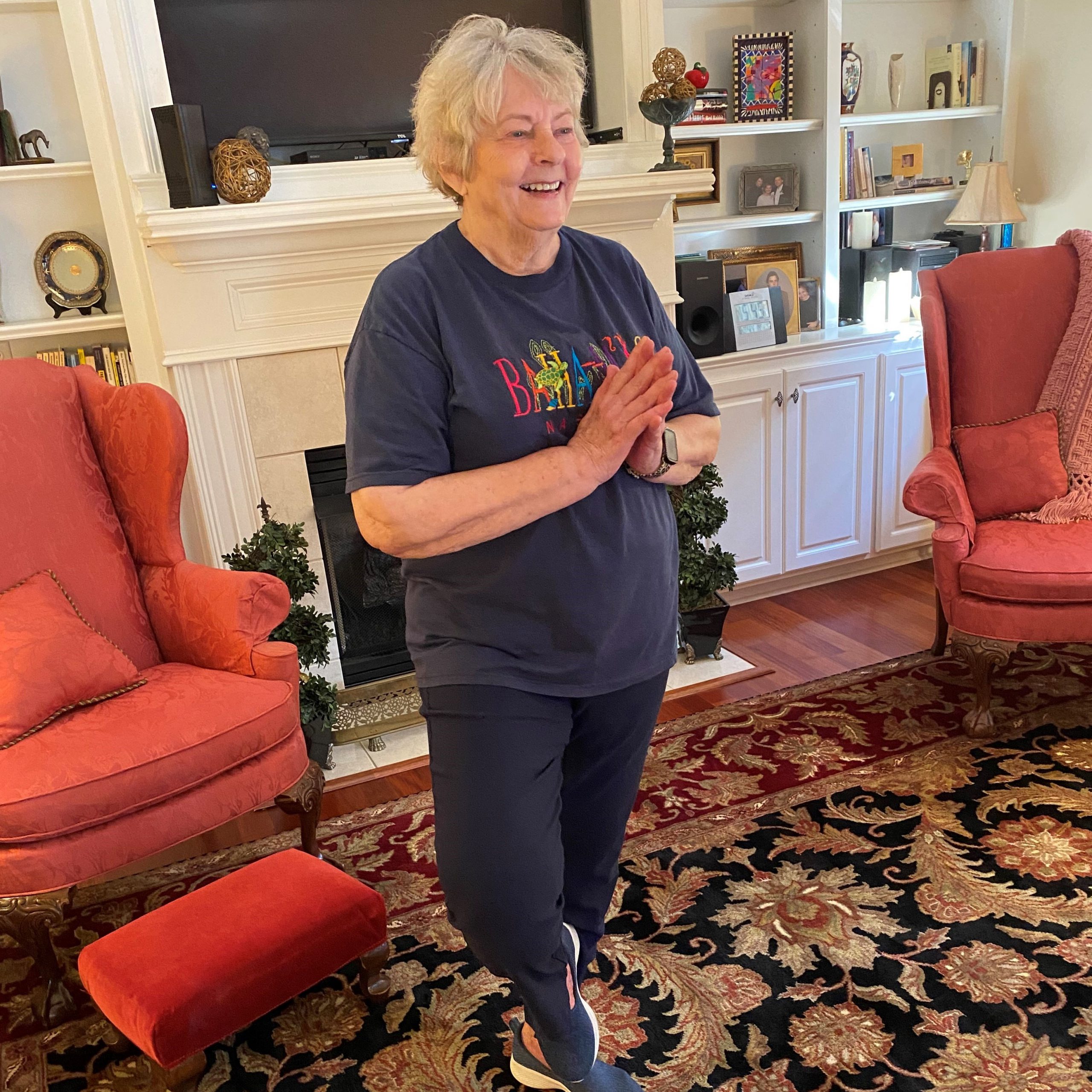Written By: Cristina Klymasz, MS, OTR/L, CBIS, RYT, CLT-LANA, MSCS
 September is National Yoga Awareness Month! Yoga might be familiar for some of us. Perhaps, for those that have not yet partaken in yoga, a picture of a flexible person comes to mind when you read the word yoga. But yoga is not only for flexible people. It is for everybody, no matter the age or ability of the person.
September is National Yoga Awareness Month! Yoga might be familiar for some of us. Perhaps, for those that have not yet partaken in yoga, a picture of a flexible person comes to mind when you read the word yoga. But yoga is not only for flexible people. It is for everybody, no matter the age or ability of the person.
A plethora of research has been performed on the benefits of yoga. There are so many benefits that I do not have space to list them all. A few of the benefits are stress reduction, depression/anxiety reduction, improved cognition, pain reduction, and stronger bones (Parkinson, T.D., and Smith, S.D., 2023). The benefits of yoga are so vast that it makes good sense to try yoga. Of importance to note, these benefits only are benefits to those that are consistent yoga participants.
If you are not athletic or flexible, that’s ok, there are types of yoga for every type of person. Below are a few that might look appealing (McGinley, 2017):
- Iyengar yoga focuses solely on alignment and adapting poses to enjoy the pose with ease.
- Yin yoga is slow paced. Typically seated poses are performed that are held for several minutes for optimal stretch and relaxation.
- Restorative yoga poses are held for several minutes with props, such as pillows and blankets, for relaxation and stress relief.
- Vinyasa yoga is a flow of poses for a mix of stretching and strength.
Try it yourself! Follow along and learn 2 poses with me:
As rehabilitation therapists we can all benefit from some yoga in our life. Our days are long and filled with mental and physical challenges. We have long days of documentation and treating. We also have emotional burn out from caring for our patients and their families. Yoga can help us unwind.
If you already are a yogi, continue practicing through the month of September and reap the benefits. Maybe, you increase your yoga practice to celebrate National Yoga Awareness Month. If you are not a yogi, I challenge you to try yoga once a week for the month of September. Try a form of yoga that appealed to you from the list above. If the form you try isn’t what you thought, try a different form. The beauty of yoga is that there is an option for each personality and body type.
If you’re having trouble finding a yoga class of the style that you enjoy, there are many virtual classes. Virtual classes allow for more variety and inclusivity. Below are some options to get you started:
- Doyogawithme.com: Free classes with a range of styles.
- Yoga Download: An on-demand yoga subscription program that is good for beginners.
- You Aligned: An on-demand subscription program with yoga teachers from around the world.
- YouTube: YouTube has free content. Be sure to search for the style of yoga and your familiarity with yoga, i.e. beginner, intermediate, advanced.
Too busy for yoga? Add it in with your patients. Our patients can all benefit from yoga poses. You may not be doing a whole hour of yoga, but a few poses can make a difference. Unsure how to adapt a pose? Yoga International has a great article on how to get started adapting poses, (Heyman, 2017). (You can find the article in the references). In the month of September, share the wealth and do yoga with your patients!
At the end of the month, check-in and reflect. Do you feel more flexible? Do you feel stronger? Do you feel more energized? Do you feel more relaxed? If you do, yoga looks good on you!
Explore online continuing education courses from Cristina below:
Holistic Treatment of the Dementia Population
Therapeutic Yoga for the Neurological Patient
Vision Rehabilitation for the Neurological Patient
Visit summit-education.com for more information.
References:
Heyman, J. (2017, December 12). Making yoga accessible: Techniques for adapting asana. Home. https://yogainternational.com/article/view/techniques-for-adapting-asana/
McGinley, K. (2017, March 24). A simple guide to the most common yoga styles. Chopra. https://chopra.com/articles/a-simple-guide-to-the-most-common-yoga-styles
Parkinson, T. D., & Smith, S. D. (2023). A cross-sectional analysis of yoga experience on variables associated with psychological well-being. Frontiers in Psychology, 13. https://doi.org/10.3389/fpsyg.2022.999130
